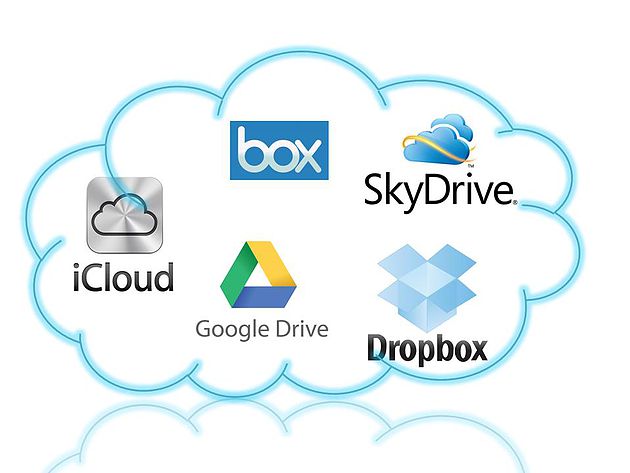Cloud Storage. You’ve heard the term “cloud”. I know you have. If you don’t remember exactly what it means then don’t worry I’m keeping it simple here today. The term “cloud” in the computing world loosely means that the computing resources (ie. servers, memory, storage) are shared between many people and they physically exist somewhere outside of your home or business. If you have ever used a service like Gmail then you have already experienced a cloud service. Enough with the dull definitions, the point of this article is to give you a taste of how you and your business can benefit from cloud storage.
Cloud storage has a couple of really attractive qualities right up front. First of all, you can usually start using it for free. Yup no charge. Ok let’s be absolutely clear. Most cloud storage providers give you a certain amount of storage before you have to pay. In the case of Google’s cloud storage product called “Drive” (Google Drive), you get 15GB free. Microsoft’s product called “OneDrive” also gives you 15GB free. That is a pretty good chunk of free storage. Others are not quite so generous. Dropbox, for example only provides you 2GB for free. Eventually, if your needs outgrow the basic free amount of storage you will have to start paying but you certainly can get started for free.
Cloud storage’s second great quality is that you don’t have to jump in with both feet to start getting the benefits. You can start off using it just a little at first and then expand your use as you feel the need and see its potential.
Ok so why would you want to use cloud storage for your business? The easy answer … security! In my (humble?) opinion that is the single best reason to explore cloud storage. Ask yourself this, how often do you take backups of your business data and where do you keep those backups? I’m sure you see where I’m going with this. Let’s face it, making backups of things is tedious at best and more likely a time consuming monster. Cloud storage, when setup correctly, can take a chunk of the worry out of information loss. No more remembering to take a backup once a week (hopefully it is a least once a week currently). And the best part about the cloud is that your information is available to you from anywhere on the planet (internet connection required of course).
Ever find yourself at home or perhaps travelling and wish you had easy access to one of your business documents. Sure you could have copied it (and every other potential document) on to a usb stick if you had known ahead of time that you were going to need it but that is not a practical approach. Have you ever tried to plug a usb stick into your phone or iPad? Of course not. The cloud eliminates all of that silliness. With the cloud, you have anytime access to all of your documents from virtually any device (laptop, phone, tablet) from anywhere (I know I said that already). What if you are working on a document with others (collaborating). Believe it or not, the cloud can do that as well. And it actually does it pretty well.
I know right about now you are probably thinking “what’s the catch?” Well it’s not so much of a catch as some words of caution. The biggest strength of the cloud is also its biggest risk. Your data will be out in the cloud existing there as many copies on many servers (and probably in many cities). Keeping your information in the cloud means trusting its care to that service provider. Whether that is Google, Microsoft, Apple or a relatively unknown organization, you have to trust that they will take proper care of your data. There was plenty of apprehension in the early days towards the cloud but nowadays in reality much of your personal data is already in the cloud without you probably realizing it. No that doesn’t make it better but it does mean that these organizations have more experience now securing your information and there have certainly been lessons learned (can you say iCloud hacked celebrity photos?) along the way.
I believe the best way to minimize your risk while getting the most out of the cloud is to seek out the advice of an experienced professional. The concept of cloud storage is generally a simple one but like most things of consequence, the devil is in the details. We at Trent Hills Technical (www.trenthillstechnical.ca), hope that you will consider us when exploring your cloud storage options or for any other of your technical needs. If you have any questions regarding cloud storage or any other technical topic, please feel free to contact me, Wayne Matthews at: wmatthews@trenthillstechnical.ca


















